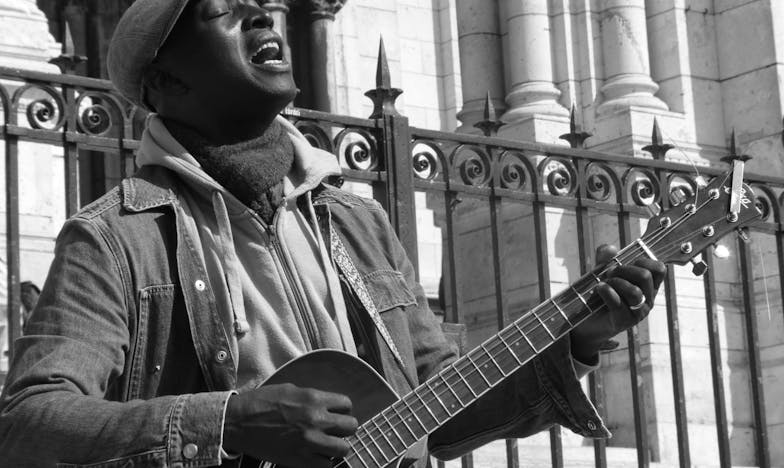You’re No Mother—You’re a Disaster!
“You’re not a mother, Emily. You’re a disaster!”
Her voice cut through the early morning quiet like a siren, waking my son and sending a hot, shameful flush crawling up my neck. I stood at the stove, spatula in hand, frozen. The pancakes burned as Linda’s words scorched the air between us. My husband, Matt, looked between us, his mouth opening and closing like a fish gasping for breath.
“Linda, please—”
“Don’t you dare, Matt. She needs to hear this! She’s keeping me from seeing my own grandson. She doesn’t cook, she doesn’t clean, and don’t get me started on the way she lets that child run wild!”
I felt the tears start to sting, but I blinked them away. I wouldn’t let her see me cry. Not again.
Two years ago, when Matt and I bought our little house in Cedar Rapids, I’d imagined cookouts, birthday parties, and quiet evenings spent watching our son, Noah, grow. I never imagined that Matt’s mom would move in with us after her hip surgery—and never leave. Every day since, our home had become a battleground.
Linda criticized everything: how I parented Noah, how I folded towels, even how I spoke to Matt. “When I was raising Matt, the house was always spotless,” she’d say, running a gloved finger over an invisible speck of dust. “Noah needs more rules. You’re too soft on him.” Sometimes, it felt like there was an invisible scoreboard, and I was always losing.
I tried to shield Noah. I tried to keep the peace. But every family dinner turned into a review of my failures. Matt would retreat to the garage, fiddling with his tools, deaf to the raised voices. Linda would sigh dramatically, slamming cabinets or muttering under her breath. I started sleeping with a knot in my stomach, dreading the next confrontation.
The day Linda called me a disaster, Noah was standing right there. He clutched his stuffed dinosaur, eyes wide.
“Grandma, Mommy’s not a disaster,” he whispered. Linda didn’t even flinch.
After she stormed out, Matt finally spoke. “Emily, she’s just set in her ways. Maybe if you tried harder—”
That was it. The final crack. “I can’t keep doing this, Matt. I’m falling apart. I’m trying to protect Noah, and you’re asking me to just accept this?”
He looked at me helplessly. “She’s my mom. She has nowhere else to go.”
“What about me? What about Noah? Don’t we matter?”
He didn’t answer. Instead, he walked away, shoulders slumped. I sank onto the kitchen floor, pancakes forgotten, and sobbed. It felt like I was disappearing, piece by piece, eaten alive by guilt and resentment.
When I finally called my mom, she listened in silence. “You need a boundary, honey. This isn’t healthy.”
I started seeing a therapist. I learned words like ‘enmeshment’ and ‘codependency.’ I wrote down everything Linda said to me, every time Matt looked away. The pages filled up fast.
One night, after Linda accused me of turning Noah against her and Matt didn’t defend me, I packed a bag for Noah and me. I left a note: “I can’t breathe here. I love you, but I need you to choose us.”
Noah and I spent three nights at my friend Jenny’s apartment. I felt guilty, but also, for the first time in months, I slept through the night. Noah laughed again. I imagined a life where I didn’t tiptoe around someone else’s rage.
Matt called, his voice trembling. “I’m sorry. I didn’t realize how bad it was. I told Mom she needs to move out. Can you come home?”
I did, cautiously. Linda was silent when we returned, her bags already packed. She glared at me from the porch, but I didn’t look away. I held Noah close. Matt put his arm around me.
“I’m sorry,” he whispered. “I should’ve protected you.”
Months went by. Linda moved in with Matt’s sister in Des Moines. The house felt bigger, brighter. Noah started sleeping through the night again.
But the scars lingered. Sometimes, I’d find myself jumping at the sound of a slammed door or flinching at criticism. Matt and I went to counseling. We learned to talk, really talk, about what we wanted our family to be.
Last Thanksgiving, Linda called. She wanted to see Noah. My hands shook as I answered. “We’d love to see you. But there are rules. No yelling. No criticism. If you can’t respect that, you can’t come.”
There was a long pause. Then, quietly, “Okay.”
As I set the table that evening, I watched Noah chase the dog around the yard, his laughter floating through the open window. Matt squeezed my hand.
“You did it,” he said. “You saved us.”
Did I? Some days, I’m not sure. Some days, I still hear Linda’s voice in my head, telling me I’m a disaster. But I look at Noah, at Matt, at this home we’re building, and I think maybe, just maybe, I’m enough.
Do you think family can really change—or do we just learn to live with the scars they leave behind? What would you have done in my place?
